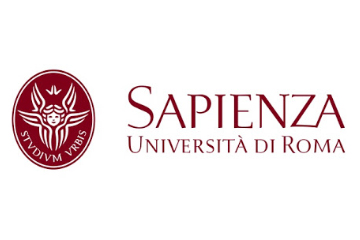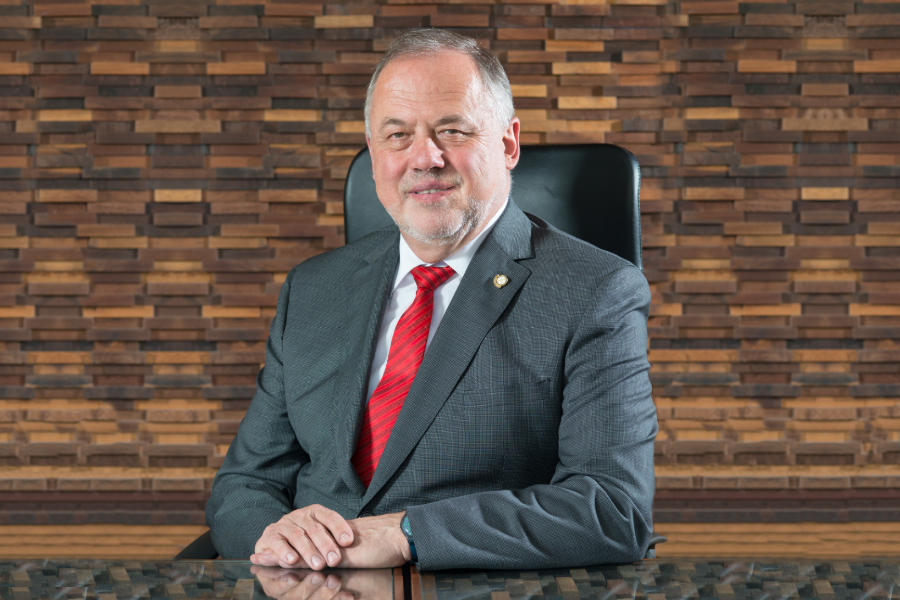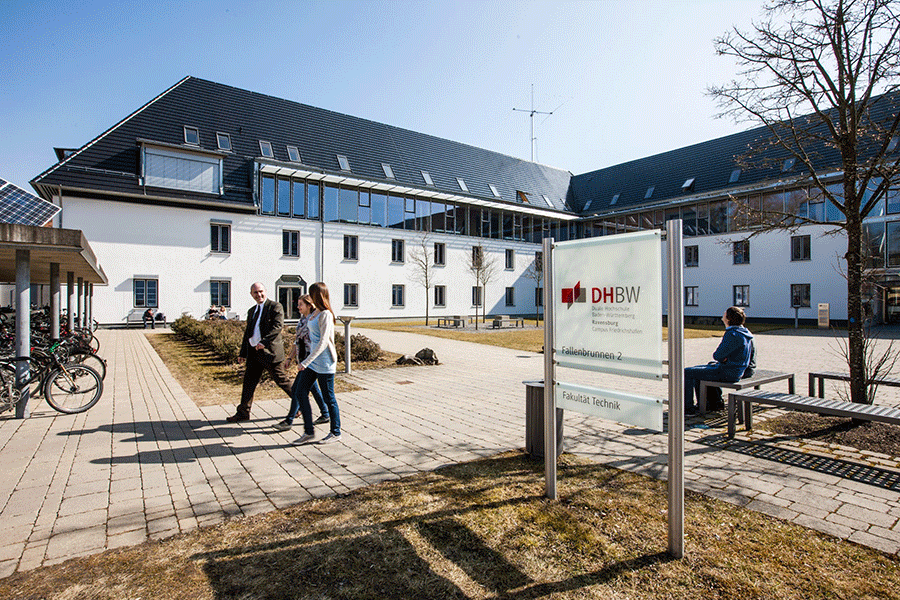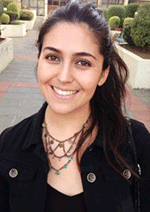UFRO and University of British Columbia shared a new experience of educational and cultural exchange
|
Some of the UFRO students of the program in Spanish and Communication Education connected with students of the Spanish 101 course of the University of British Columbia (UBC) and had to put into practice their knowledge of teaching and their English skills. |
The Spanish and Communication Education students Javiera Jorquera, María Carolina Oyarzún and Génesis Orellana of the Universidad de La Frontera (UFRO) and Fabián Leal, a former student of the program, had to teach their Canadian peers about the educative and cultural contexts of UFRO and our city (Temuco, Chile). This workshop was very interesting for the participants, since the undergraduate students of UFRO had to play the role of the teacher in front of the Spanish 101 class. Each of them had to present his or her experiences as a South American student studying at a regional state university, as well as their future goals and short-term goals. They also had to put their educational skills to the test, as well as their command of a second language – English in this case – within the framework of a first approach to teaching. The pandemic has affected the whole world, but it also opened new doors and brought new opportunities. One example for that is the huge progress in online education. “Thanks to virtuality, we were able to participate in this opportunity of learning and cultural exchange. Otherwise, this would not have been possible. It helps us to broaden our vision of the world when we share with people from other countries, especially when you do that in another language”, explained Javiera Jorquera, one of the students who actively participated in the workshop. In addition to the cultural exchange, it is worth mentioning the possibility for our students to put their English skills into practice, in an excellent university environment with native speakers who are not only from Canada, but also from other parts of the world, since UBC is well known for being a very multicultural university. In this context, Genesis Orellana, who is in her third year of the program in Spanish and Communication Education and who participated for the first time in an initiative like this, explained that “it was a completely new experience. I was extremely nervous to face the challenge of teaching a group that did not know any Spanish, but it also was an excellent motivation for me to put my English language skills into practice. I am very happy that I was able to be part of this workshop and to teach these young people who are making a great effort, facing the challenge of learning a new language”. RELATIONSHIP CHILE-CANADA This session of the workshop was the fourth in less than a year and was made possible thanks to the collaborative work between Dr. Iris Escuer Riera of UBC (Vancouver, Canada) and Dr. Carolina Navarrete G. (UFRO, Chile), who indicated that “learning opportunities like this one, where our students can interact directly with their international peers – regardless of the pandemic – allow them to put their skills as future teachers into practice, to build partnerships and to broaden their horizons. In addition, it allows the students to increase their self-confidence and the confidence in their communicative, cultural and social skills. In this kind of activities, you can clearly see the excellent work developed by the UFRO School of Education and the program in Spanish and Communication Education regarding the training of our students – also in an international context”. After more than five years of international collaborative work between these two academics, Dr. Iris Escuer Riera emphasized the importance of this educational exchange of experiences between students of UBC and UFRO. “It has been a great pleasure to bring two cultures together and to enjoy interesting conversations, as well as the possibility of making new friends. I want to express my deep gratitude to the students of UFRO and to Dr. Carolina Navarrete for their active participation in my Spanish classes at UBC”, Dr. Escuer Riera said. Written by: Communications Office, UFRO
|
|
This initiative, financed by the Chilean National Agency for Research and Development (ANID), through the FONDEQUIP (Fund for Scientific and Technological Equipment) program, will strengthen the development of R&D applied to the study of materials such as polymers, thermoplastics and biomaterials, and the numerical modeling of composite materials, among others. |
The university Universidad de La Frontera (UFRO), through the Department of Mechanical Engineering of the Faculty of Engineering and Sciences, made another step towards continuous improvement by adding a scientific equipment that is unique in Chile. This Equipment is for Dynamic Materials Testing and is part of the FONDEQUIP project no. EQM180111, called “Associative development of new isotropic and anisotropic materials based on broad-spectrum dynamic mechanical conditions”. The purchase of this equipment was approved and financed by ANID, with an amount of more than 210 million Chilean pesos (ca. 275,500 USD), and will strengthen the development of R&D applied to the study of new materials, such as polymers, thermoplastics and biopolymers. At the same time, it will provide essential information for the numerical modeling of composite materials, among others. According to Dr. Renato Hunter, the director of the project and Vice-rector for Academic Affairs at UFRO, “the acquisition of this equipment puts the Universidad de La Frontera in a leading position in the development of mechanical material characterization tests. It also puts us in a position of excellence regarding the promotion and strengthening of the development of research and the training of advanced human capital at the universities Universidad de La Frontera, Universidad de Talca, Universidad del Bío-Bío, Universidad de Santiago de Chile, and the Scientific and Technological Bioresource Nucleus (BIOREN-UFRO), by focusing the development of basic and applied R&D on new materials and biomaterials”. He also explained that this new equipment would give UFRO the opportunity to open new lines of research and to work together with other international universities through the Doctoral Programs of UFRO, and especially through the new Doctoral Program in Engineering, which was developed together with the universities Universidad de Talca and Universidad del Bio Bio, through the Project Engineering 2030. “This new equipment will allow us to establish a collaborative network with the universities that are part of this initiative, as well as with companies in the industrial sector that require the determination of the mechanical properties of materials through static and dynamic tests at different temperatures”, Dr. Hunter added. The Composite Materials Laboratory of the Department of Mechanical Engineering is currently working together with a group of companies on a permanent basis. In this context, the acquisition of this new equipment will allow to increase the collaboration with these companies, thanks to the increased testing possibilities that it offers. Written by: UFRO Communications Office
|
|
Thanks to an agreement signed in 2019, students from both universities will be carrying out joint research, with the aim of achieving a double degree, from Chile and Italy. |
The Universidad de La Frontera (UFRO) started to collaborate with Sapienza University of Rome in 2017, through the UFRO Doctorate in Communication and the Faculty of Political Sciences, Sociology and Communication of Sapienza, which led to an exchange agreement that was signed two years later and that allows the students of both universities to carry out research under joint supervision, with the possibility to achieve a double degree. This academic alliance is part of the internationalization process of the UFRO Doctorate in Communication. The program does already have a double degree agreement with the University of Groningen (Netherlands), which currently allows three students to work on their double degree and will allow two other students to start this process next year. In this context, the agreement with Sapienza University will be a great opportunity for even more students. According to Dr. Carlos del Valle, the director of the doctoral program, the access to a double degree is a significant contribution to the academic training of the students and a cultural and educational enrichment as well. One of the challenges that the students of the program have to face when they go to other universities – European universities in this case – is the fact that they will have to work in a context that is very different from ours regarding their research and academic stays. “When you work together with other universities in Latin America, the experience is more similar to ours and it is easier to adapt, but when the students go to a university in Europe, they do not only have to adapt to cultural differences in general, but also on the academic level. But, of course, that also makes the experience more exciting and it is definitely worth it,” he said.
Written by: Communications Office, UFRO
|
|
In March of 2021, the Rector of UFRO, Dr. Eduardo Hebel Weiss, was elected as a member of the Board of Directors of Universia Chile. This month, he assumed his duties. |
Universia is the largest network of university cooperation in Ibero-America. In Chile, it stands out since its foundation, for being a meeting point for the 57 Chilean universities that are part of it. The main lines of action focus on academic orientation and on support for the digital transformation of the universities. This is the first time that the Universidad de La Frontera (UFRO) is part of this Board of Directors, being represented by the Rector, Dr. Eduardo Hebel Weiss, since July 14 of 2021. According to the bylaws of the network, the appointment is for two years, but the members can be re-elected for an unlimited number of times. In this regard, Dr. Hebel said that “our university will make an important contribution to this network that brings about 800 universities from all over the world together. It is the first time that we are part of this Board of Directors and we will be working together with the rectors of the other universities, in order to think about the university of the future”. Universia Chile is a corporation with a Board of Directors, which consist of the rectors of the following Chilean universities: Universidad de Chile, Pontificia Universidad Católica de Chile, Pontificia Universidad Católica de Valparaíso, Universidad Mayor, Universidad de La Frontera, Universidad Católica del Norte, Universidad del Desarrollo, Universidad de Talca, Universidad de los Andes, Universidad Santa María and Universidad de Santiago de Chile, as well as of independent individuals and executives of the Santander Group. Written by: UFRO Communications Office
|
|
Pamela Vera Loncomilla and Xeiya Abarzúa Cifuentes are the two students of the UFRO Faculty of Law and Business, who were selected to spend a trimester at DHBW-Ravensburg in Germany in 2021. |
The two selected students of the program in Business Administration of the Universidad de La Frontera (UFRO) will have the opportunity to spend a trimester at the Duale Hochschule Baden-Württemberg (DHBW) in Ravensburg, Germany, from July 1 to September 28, thanks to the current agreement between the Faculty of Law and Business at UFRO (FCJE-UFRO) and DHBW-Ravensburg.
The Faculty of Law and Business has its own internationalization program, with thirteen valid agreements with universities in different parts of the world. They are an important platform for the students, since they allow them to build their own professional networks and offer them many great opportunities.
Written by: Karen Campos
|













